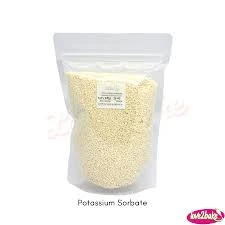
Exploring the Benefits of Titanium Dioxide as a Performance Enhancing Additive
The Role of Titanium Dioxide Additives in Various Industries
Titanium dioxide (TiO2), a naturally occurring mineral, has emerged as a pivotal additive in several industries due to its remarkable properties, including high refractive index, UV resistance, and non-toxic nature. From paints and coatings to plastics and food products, titanium dioxide additives serve a myriad of applications, enhancing performance and functionality.
Paints and Coatings
One of the most prominent uses of titanium dioxide is in the paints and coatings industry. As a pigment, TiO2 provides excellent coverage, bright whiteness, and long-lasting durability. It enhances the opacity of paints, requiring a lesser volume to achieve the same coverage compared to other pigments. This not only results in cost savings but also reduces the need for multiple coats, thereby saving time and labor.
Moreover, titanium dioxide is UV resistant, which helps in improving the longevity of exterior coatings. It minimizes chalking and fading caused by sunlight exposure, making it an ideal choice for applications in outdoor environments. Consequently, the use of TiO2 in coatings contributes to sustainable practices by extending the lifecycle of painted surfaces.
Plastics and Polymers
In the realm of plastics and polymers, titanium dioxide acts as a vital additive, improving the physical and aesthetic properties of materials. It is commonly incorporated into products like polypropylene, polyethylene, and polystyrene. By enhancing opacity and brightness, TiO2 allows manufacturers to produce visually appealing products.
Additionally, titanium dioxide contributes to the thermal stability of plastics, making them suitable for high-temperature applications. Its inclusion in various plastic products also imparts UV blocking characteristics, protecting the underlying materials from degradation caused by sunlight exposure. This attribute is particularly beneficial for outdoor applications, such as in the automotive and consumer goods sectors.
titanium dioxide additive

Food Industry
Interestingly, titanium dioxide finds its way into the food industry as a food additive, designated as E171. It is used to enhance the whiteness and opacity of food products, such as confections, dairy items, and sauces. However, this application has been under scrutiny due to health concerns raised over the inhalation of nanoscale TiO2 particles and potential links to gastrointestinal issues when ingested in large quantities.
Many countries are now reviewing regulations concerning the use of titanium dioxide in food products, leading to a shift towards alternative whiteners. Despite the controversies, the functional benefits of TiO2 in food applications are hard to ignore, and ongoing research is essential to ensure consumer safety while maximizing its potential.
Cosmetics and Personal Care Products
In the cosmetics industry, titanium dioxide serves as a UV filter and pigment in products like sunscreens, foundations, and powders. Its ability to provide broad-spectrum UV protection makes it an essential ingredient for sun protection products. As a mineral-based sunscreen agent, it is favored for being less irritating to the skin compared to chemical filters.
Furthermore, titanium dioxide enhances the texture and appearance of cosmetic products, resulting in a silky finish. It provides a natural matte effect, making it a popular choice for a range of beauty formulations.
Conclusion
The versatility of titanium dioxide as an additive across multiple industries underscores its significance in enhancing product quality and performance. While its applications range from improving the aesthetic qualities of paints to ensuring the safety of personal care products, it is crucial to navigate the challenges posed by safety concerns as regulations evolve. As research continues to unravel the complexities of titanium dioxide, its role in innovative applications is set to expand, fostering more sustainable and efficient solutions in our daily lives.
-
The Safety Challenges of Ammonium Nitrate FertilizerNewsJun.26,2025
-
The Critical Role of Mining ChemicalsNewsJun.26,2025
-
Shelf Life of Glacial Acetic Acid Food GradeNewsJun.26,2025
-
Enhancing PVC Longevity with 1,2,3-Benzotriazole InnovationsNewsJun.26,2025
-
China’s Dominance in Food Additive ProductionNewsJun.26,2025
-
Can Aluminum Hydroxide Replace More Toxic Alternatives?NewsJun.26,2025
-
PE and PP Plastics with Benzotriazole AdditivesNewsJun.12,2025
Hebei Tenger Chemical Technology Co., Ltd. focuses on the chemical industry and is committed to the export service of chemical raw materials.
-

view more DiethanolisopropanolamineIn the ever-growing field of chemical solutions, diethanolisopropanolamine (DEIPA) stands out as a versatile and important compound. Due to its unique chemical structure and properties, DEIPA is of interest to various industries including construction, personal care, and agriculture. -

view more TriisopropanolamineTriisopropanolamine (TIPA) alkanol amine substance, is a kind of alcohol amine compound with amino and alcohol hydroxyl, and because of its molecules contains both amino and hydroxyl. -

view more Tetramethyl Thiuram DisulfideTetramethyl thiuram disulfide, also known as TMTD, is a white to light-yellow powder with a distinct sulfur-like odor. It is soluble in organic solvents such as benzene, acetone, and ethyl acetate, making it highly versatile for use in different formulations. TMTD is known for its excellent vulcanization acceleration properties, which makes it a key ingredient in the production of rubber products. Additionally, it acts as an effective fungicide and bactericide, making it valuable in agricultural applications. Its high purity and stability ensure consistent performance, making it a preferred choice for manufacturers across various industries.











